For Kabul based school teacher Saliha Soma Rawfie, there is an inescapable sense of déjà vu in watching the developments across the border in Pakistan.
For Kabul based school teacher Saliha Soma Rawfie, there is an inescapable sense of déjà vu in watching the developments across the border in Pakistan. “During the Taliban period, women here were forced into their homes in Afghanistan. Implementing the sharia laws in Swat is an effort to force women back into those times.”
It has been a bad week for women’s rights in the region. A chilling video shows a Taliban firing squad gun down a couple accused of adultery in northwestern Pakistan.
The incident comes hard on the heels of the signing of the Nizam e Adl regulation by Pakistan’s National Assembly, which allows the Taliban to implement traditional Sharia law across the Malakand division of the NWFP, which includes the Swat Valley, about 200 kms from Islamabad. “It is a horrific trade off for women,” says Saba Gul Khattak, Islamabad-based policy analyst. “The agreement may contain armed conflict, but education, mobility and the right to work for women will suffer.”
For many women in the region, the recent events reveal patterns that are only too familiar. “Afghan women want to be independent, and we thought that after 2001 things would get better,” says Farouk, an 18 year old student. “But instead we are getting less and less space.” Farouk was one of the approximately 150 women who gathered outside the main Shia mosque in Kabul last week to protest a law that critics say legalises marital rape. The small group of protestors was swamped by a counter demonstration of around a thousand men, who abused the women for being “slaves to Christians.” “This is a religious society and it is very easy for conservative leaders to influence public opinion. It has always been the men who define women’s rights in Afghanistan, and they want to adjust the laws to their benefit,” says Rawfie.
The problem, points out Afghan parliamentarian Shukriya Barakzai, is not limited to a particular region or even religion. “In the spread of extremist movements, women’s bodies, their beings, their rights are always the first to go,” she says. “The honour of a family in traditional societies is associated with their womenfolk,” says Pervez Hoodbhoy, Lahore based academic and peace activist. “To punish the women publicly is to disgrace the family, and hence to demonstrate the terrible power of the punishers.”
For businesswoman Sima Ghani, who was also part of the protest in Kabul, however, the targeting of women by extremist movements has less to do with religion and more to do with the insecurity of men. “Sharia law actually treats men and women as equals,” she says, pointing at the crowd screaming at her. “These men are very insecure and probably don’t know anything about the law they are defending.” Agrees Hilai (name changed), who works for an NGO in Peshawar, “Women are soft targets. By flogging young women in Swat or shutting down girls schools, the Taliban get international attention and establish their power.”
The current crisis has led several activists to draw parallels with General Zia’s military dictatorship. “It would seem we are back in that time, when everything about women’s rights was being questioned,” says Anis Khatoon. The Womens Action Forum, of which Khatoon is one of the founders, had been established as a response to such repression during those difficult years. “Once again, it is up to the women’s movement to defend our constitutional rights,” she says.
According to Hoodbhoy, however, far more is at stake than the rights of women. “Pakistan is fighting for its life. If it loses the battle, the world’s first fascist Sunni state may well be born. It will first devour its own people, then those around.” Agrees Khattak, “This time women are not the only ones being targeted. Men are also being slaughtered, beheaded and dismembered.” While women may be the first targets of the violence, she adds, “It is sure to spread to different levels and beyond the region. It is the brutalisation of an entire society.”
With inputs from Kabul by Anders Hammer![submenu-img]() Arshdeep Singh, Suryakumar Yadav shine as India romp into Super 8s of T20 World Cup 2024 by thrashing USA
Arshdeep Singh, Suryakumar Yadav shine as India romp into Super 8s of T20 World Cup 2024 by thrashing USA![submenu-img]() Why Rohit Sharma and Co. were awarded 5 penalty runs during IND vs USA T20 World Cup 2024 match?
Why Rohit Sharma and Co. were awarded 5 penalty runs during IND vs USA T20 World Cup 2024 match?![submenu-img]() Rituparna Sengupta opens up on her chemistry with Prosenjit Chatterjee, talks about their 50th film Ajogyo | Exclusive
Rituparna Sengupta opens up on her chemistry with Prosenjit Chatterjee, talks about their 50th film Ajogyo | Exclusive![submenu-img]() DNA TV Show: How fire broke in Kuwait building that killed 49 people including Indians
DNA TV Show: How fire broke in Kuwait building that killed 49 people including Indians![submenu-img]() Virat Kohli achieves unwanted record during IND vs USA T20 World Cup 2024 match
Virat Kohli achieves unwanted record during IND vs USA T20 World Cup 2024 match![submenu-img]() Meet man, security guard’s son who cracked UPSC exam in first attempt by studying from borrowed books, he is posted as..
Meet man, security guard’s son who cracked UPSC exam in first attempt by studying from borrowed books, he is posted as..![submenu-img]() Meet woman who once worked as receptionist, cracked UPSC exam to become IPS officer, secured AIR...
Meet woman who once worked as receptionist, cracked UPSC exam to become IPS officer, secured AIR...![submenu-img]() Meet genius, only Indian nominated for Nobel by CV Raman, did not win due to...
Meet genius, only Indian nominated for Nobel by CV Raman, did not win due to...![submenu-img]() TS TET Result 2024: Telangana TET results declared, check direct link, pass percentage
TS TET Result 2024: Telangana TET results declared, check direct link, pass percentage![submenu-img]() UGC says Indian universities can offer admission twice a year starting from...
UGC says Indian universities can offer admission twice a year starting from...![submenu-img]() DNA Verified: Did Kangana Ranaut party with gangster Abu Salem? Actress reveals who's with her in viral photo
DNA Verified: Did Kangana Ranaut party with gangster Abu Salem? Actress reveals who's with her in viral photo![submenu-img]() DNA Verified: New Delhi Railway Station to be closed for 4 years? Know the truth here
DNA Verified: New Delhi Railway Station to be closed for 4 years? Know the truth here![submenu-img]() DNA Verified: Did RSS chief Mohan Bhagwat praise Congress during Lok Sabha Elections 2024? Know the truth here
DNA Verified: Did RSS chief Mohan Bhagwat praise Congress during Lok Sabha Elections 2024? Know the truth here![submenu-img]() DNA Verified: Is CAA an anti-Muslim law? Centre terms news report as 'misleading'
DNA Verified: Is CAA an anti-Muslim law? Centre terms news report as 'misleading'![submenu-img]() DNA Verified: Lok Sabha Elections 2024 to be held on April 19? Know truth behind viral message
DNA Verified: Lok Sabha Elections 2024 to be held on April 19? Know truth behind viral message![submenu-img]() How Kalki 2898 AD makers dared to dream pan-India with its unique promotional campaign for Prabhas-starrer
How Kalki 2898 AD makers dared to dream pan-India with its unique promotional campaign for Prabhas-starrer![submenu-img]() In pics: Prabhas' robotic car Bujji from Kalki 2898 AD takes over Mumbai streets, fans call it 'India's Batmobile'
In pics: Prabhas' robotic car Bujji from Kalki 2898 AD takes over Mumbai streets, fans call it 'India's Batmobile'![submenu-img]() Streaming This Week: Bade Miyan Chote Miyan, Maidaan, Gullak season 4, latest OTT releases to binge-watch
Streaming This Week: Bade Miyan Chote Miyan, Maidaan, Gullak season 4, latest OTT releases to binge-watch![submenu-img]() Lok Sabha Elections 2024 Result: From Smriti Irani to Mehbooba Mufti, these politicians are trailing in their seats
Lok Sabha Elections 2024 Result: From Smriti Irani to Mehbooba Mufti, these politicians are trailing in their seats![submenu-img]() Lok Sabha Elections 2024: 6 states with highest number of seats
Lok Sabha Elections 2024: 6 states with highest number of seats![submenu-img]() Lok Sabha Elections 2024: What are exit polls? When and how are they conducted?
Lok Sabha Elections 2024: What are exit polls? When and how are they conducted?![submenu-img]() DNA Explainer: Why was Iranian president Ebrahim Raisi seen as possible successor to Ayatollah Khamenei?
DNA Explainer: Why was Iranian president Ebrahim Raisi seen as possible successor to Ayatollah Khamenei?![submenu-img]() DNA Explainer: Why did deceased Iranian President Ebrahim Raisi wear black turban?
DNA Explainer: Why did deceased Iranian President Ebrahim Raisi wear black turban?![submenu-img]() Iran President Ebrahim Raisi's death: Will it impact gold, oil prices and stock markets?
Iran President Ebrahim Raisi's death: Will it impact gold, oil prices and stock markets?![submenu-img]() Haryana Political Crisis: Will 3 independent MLAs support withdrawal impact the present Nayab Saini led-BJP government?
Haryana Political Crisis: Will 3 independent MLAs support withdrawal impact the present Nayab Saini led-BJP government?![submenu-img]() Rituparna Sengupta opens up on her chemistry with Prosenjit Chatterjee, talks about their 50th film Ajogyo | Exclusive
Rituparna Sengupta opens up on her chemistry with Prosenjit Chatterjee, talks about their 50th film Ajogyo | Exclusive![submenu-img]() Anand Mahindra rides Prabhas' futuristic car Bujji from Kalki 2898 AD, video goes viral
Anand Mahindra rides Prabhas' futuristic car Bujji from Kalki 2898 AD, video goes viral![submenu-img]() Anurag Kashyap reacts to Pankaj Jha's 'spineless' remark for replacing him in Gangs of Wasseypur: 'We could not...'
Anurag Kashyap reacts to Pankaj Jha's 'spineless' remark for replacing him in Gangs of Wasseypur: 'We could not...'![submenu-img]() Watch: Real Chandu Champion Murlikant Petkar gets teary-eyed after first screening of Kartik Aaryan-starrer biopic
Watch: Real Chandu Champion Murlikant Petkar gets teary-eyed after first screening of Kartik Aaryan-starrer biopic![submenu-img]() Who is Pavithra Gowda? Failed actress, fashion designer, Kannada star Darshan's 'wife', arrested with him in murder case
Who is Pavithra Gowda? Failed actress, fashion designer, Kannada star Darshan's 'wife', arrested with him in murder case![submenu-img]() Nita Ambani wears emerald-diamond necklace for Anant Ambani-Radhika Merchant's second pre-wedding bash, its price is...
Nita Ambani wears emerald-diamond necklace for Anant Ambani-Radhika Merchant's second pre-wedding bash, its price is...![submenu-img]() India ‘robbed’ of FIFA World Cup 2026 seat? Netizens blast disputed goal by Qatar, slam referee
India ‘robbed’ of FIFA World Cup 2026 seat? Netizens blast disputed goal by Qatar, slam referee![submenu-img]() Viral video: Rare two-headed snake in zoo shocks internet, watch
Viral video: Rare two-headed snake in zoo shocks internet, watch![submenu-img]() Mukesh Ambani, Nita Ambani's family drinks milk of this cow breed every day, price per litre is a whopping Rs..
Mukesh Ambani, Nita Ambani's family drinks milk of this cow breed every day, price per litre is a whopping Rs..![submenu-img]() NASA warns about 1400-foot asteroid rapidly approaching Earth, but the good news is...
NASA warns about 1400-foot asteroid rapidly approaching Earth, but the good news is...
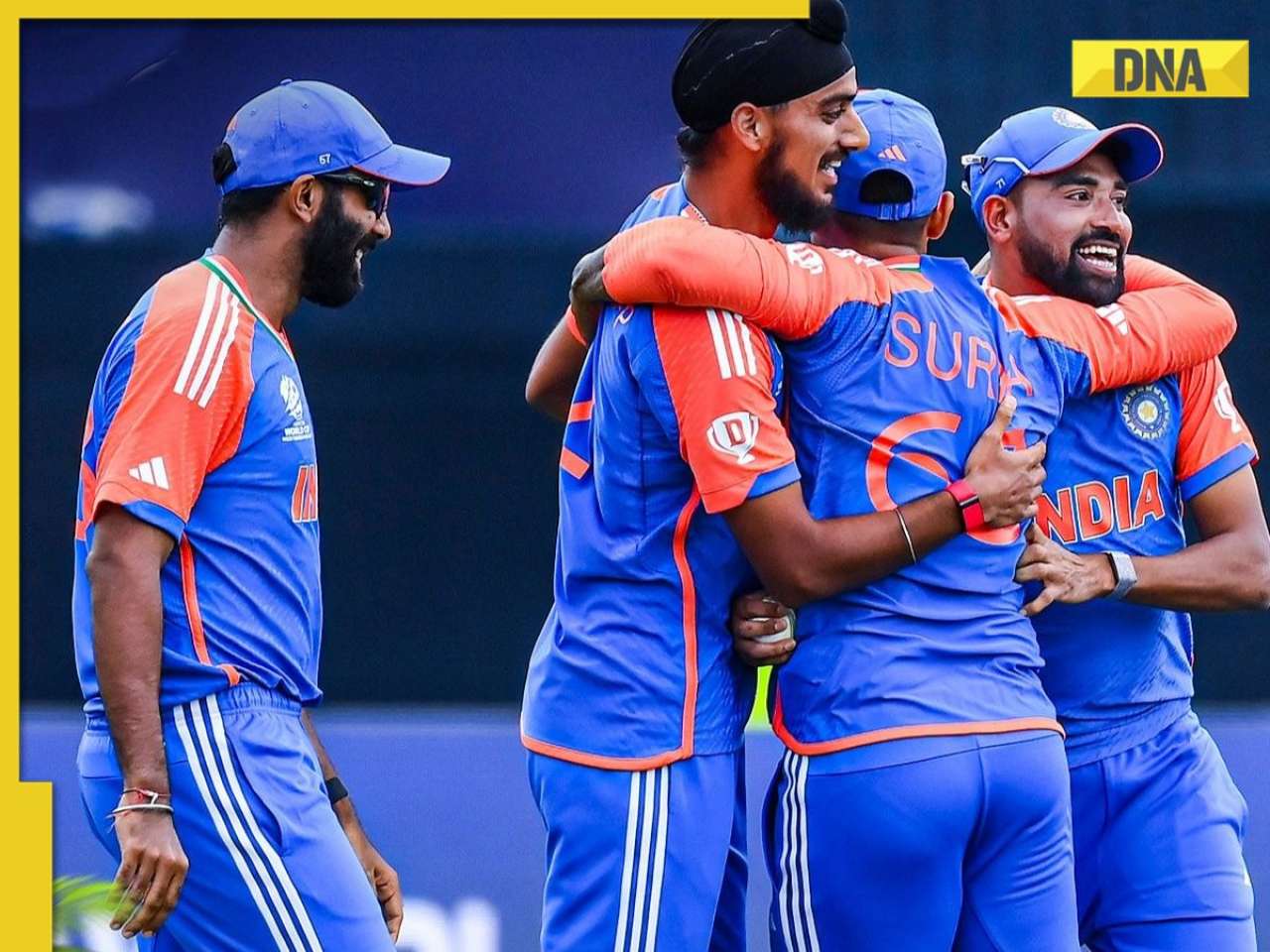
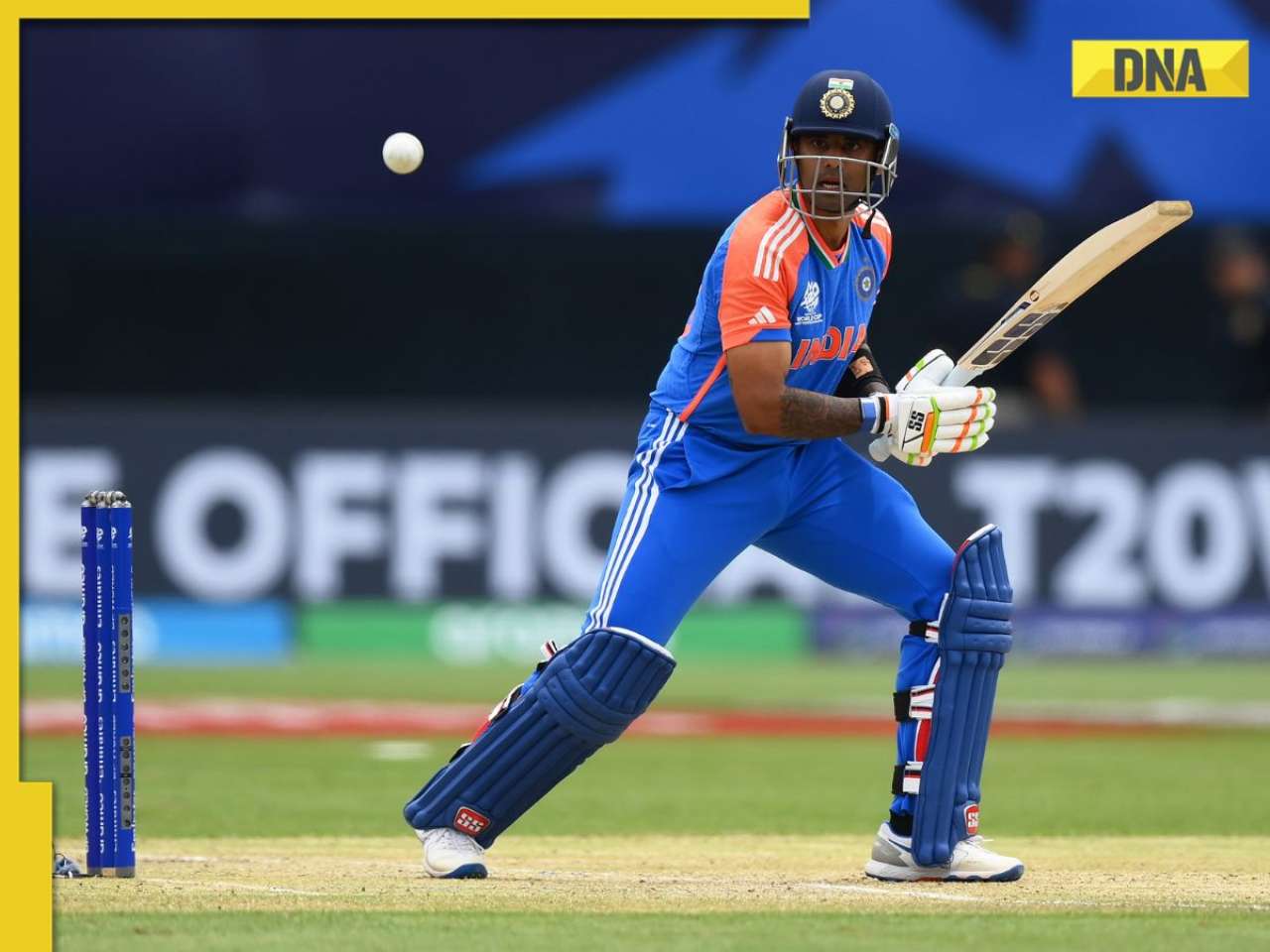


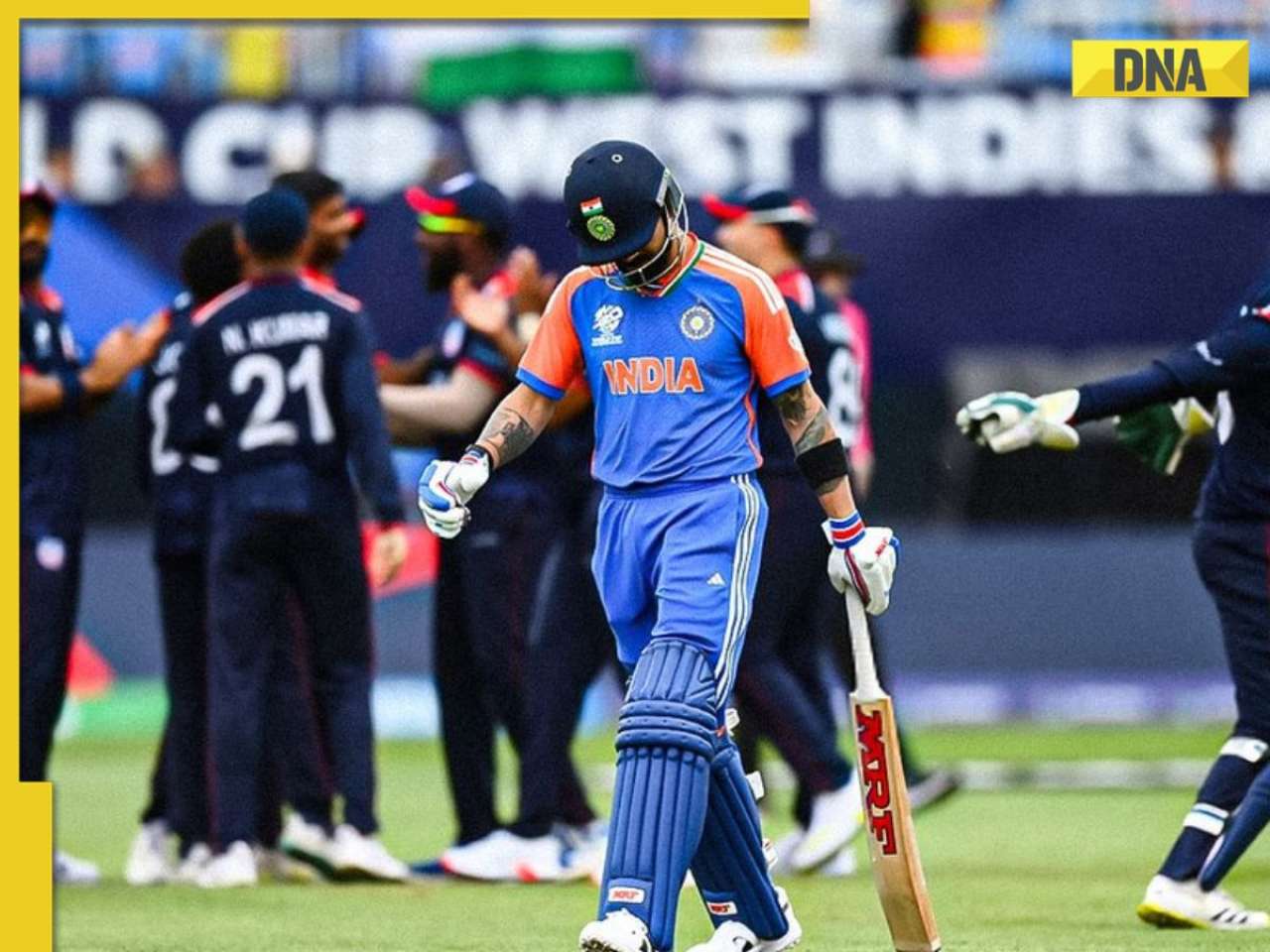







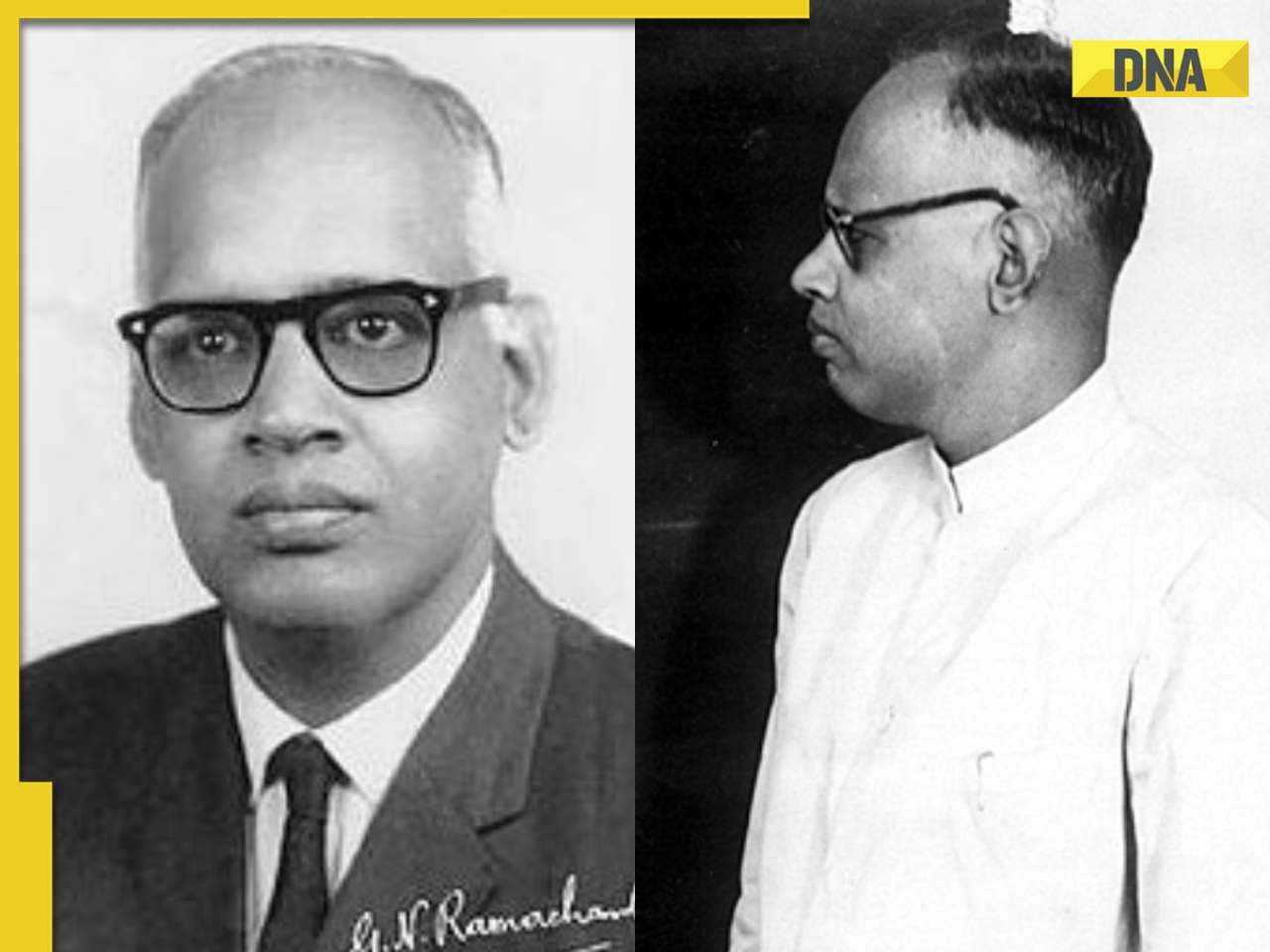
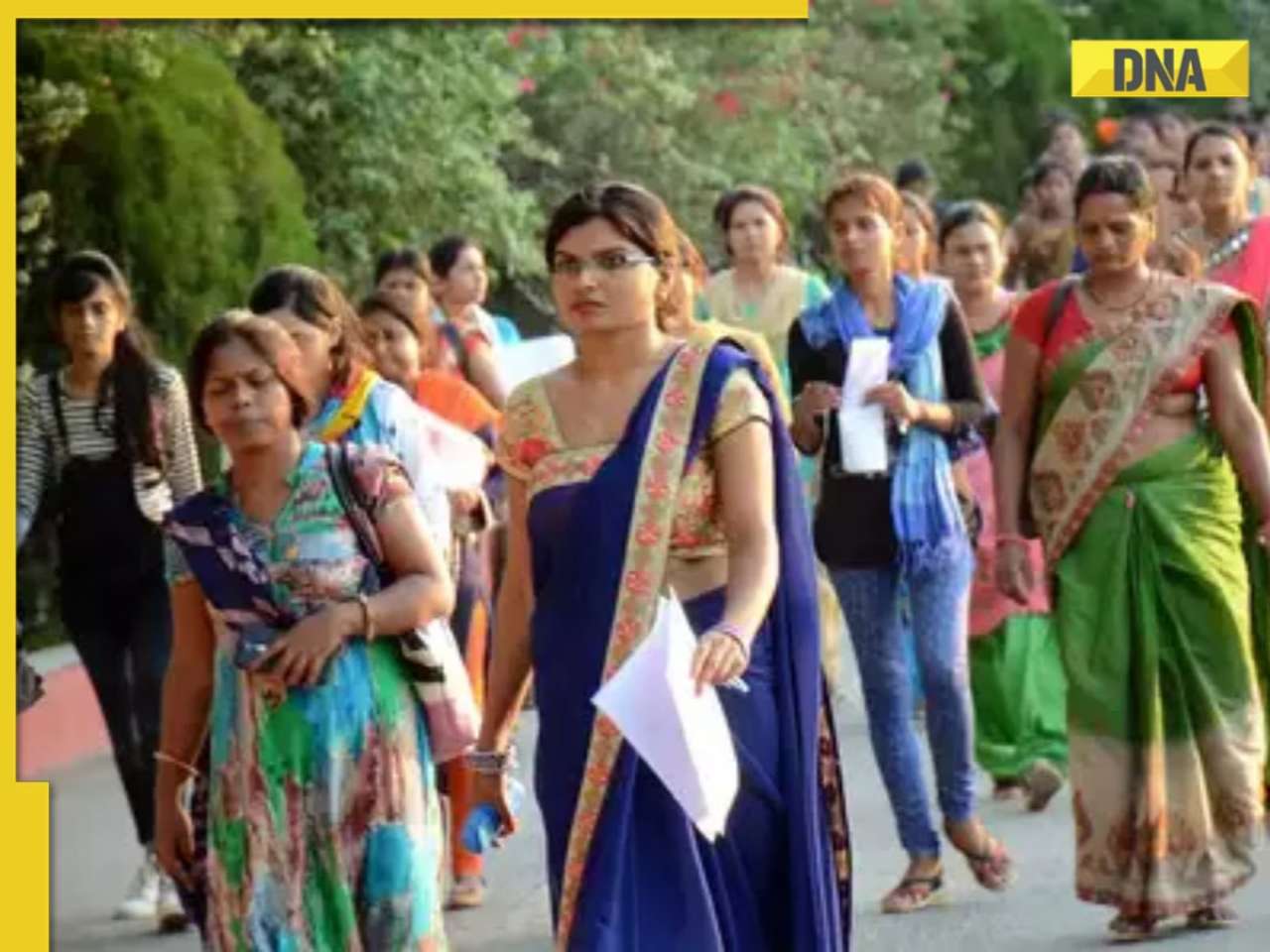









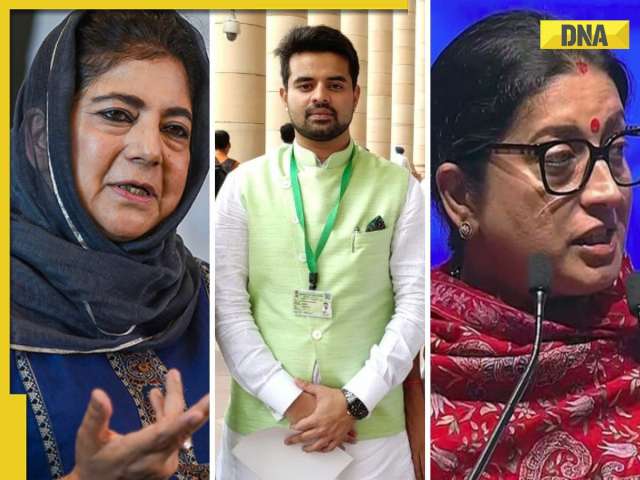
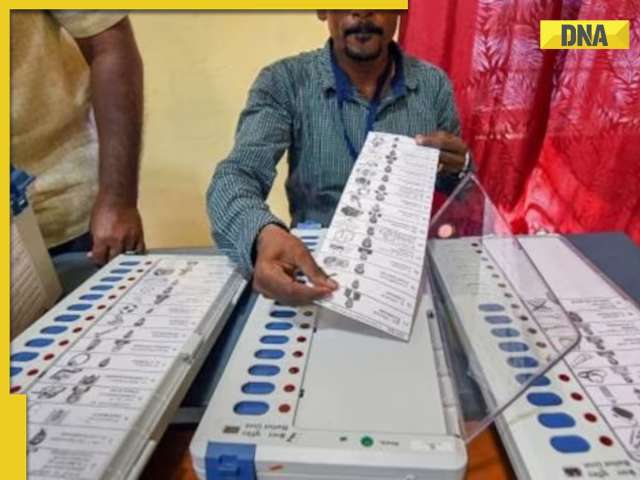










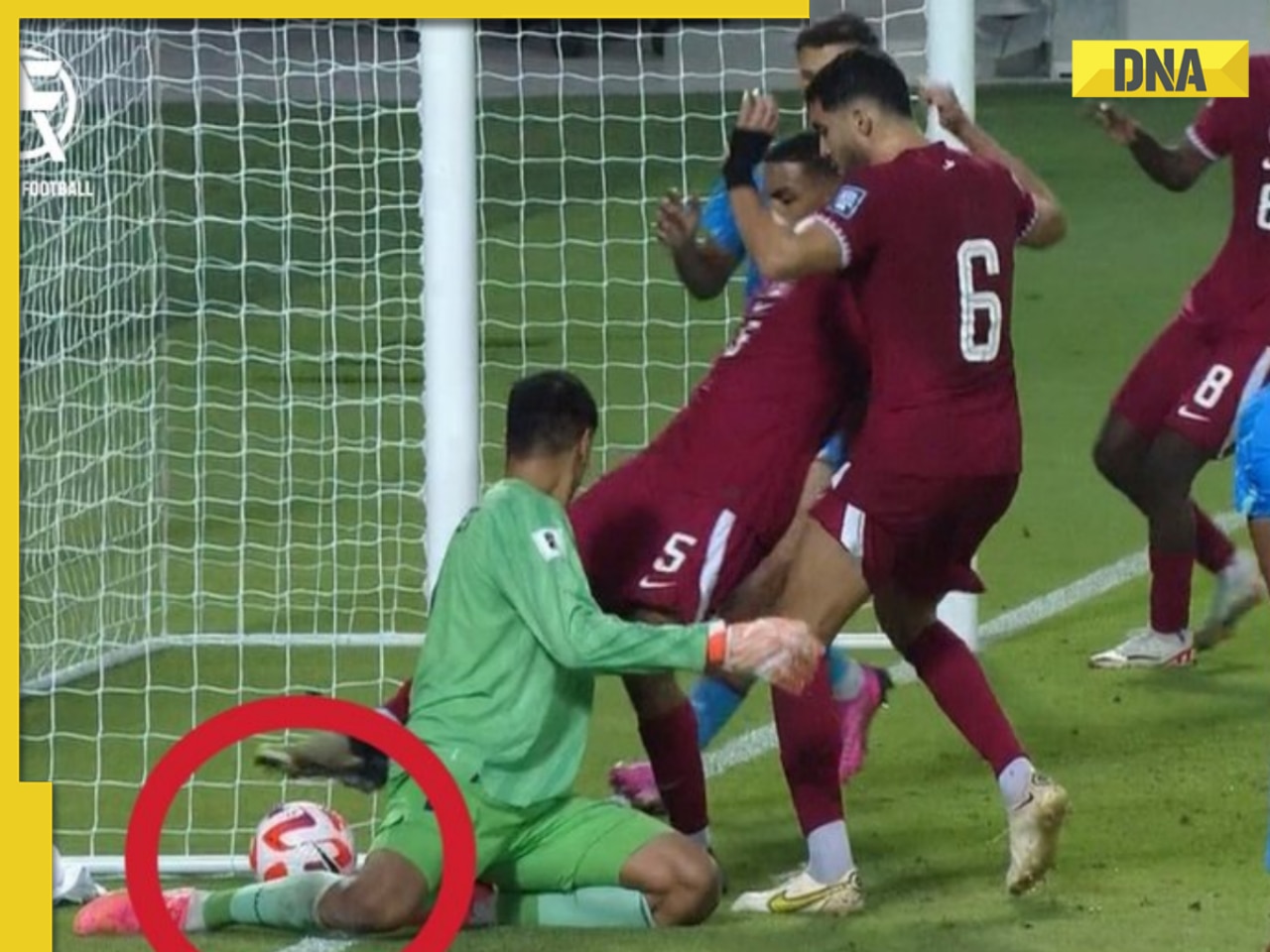





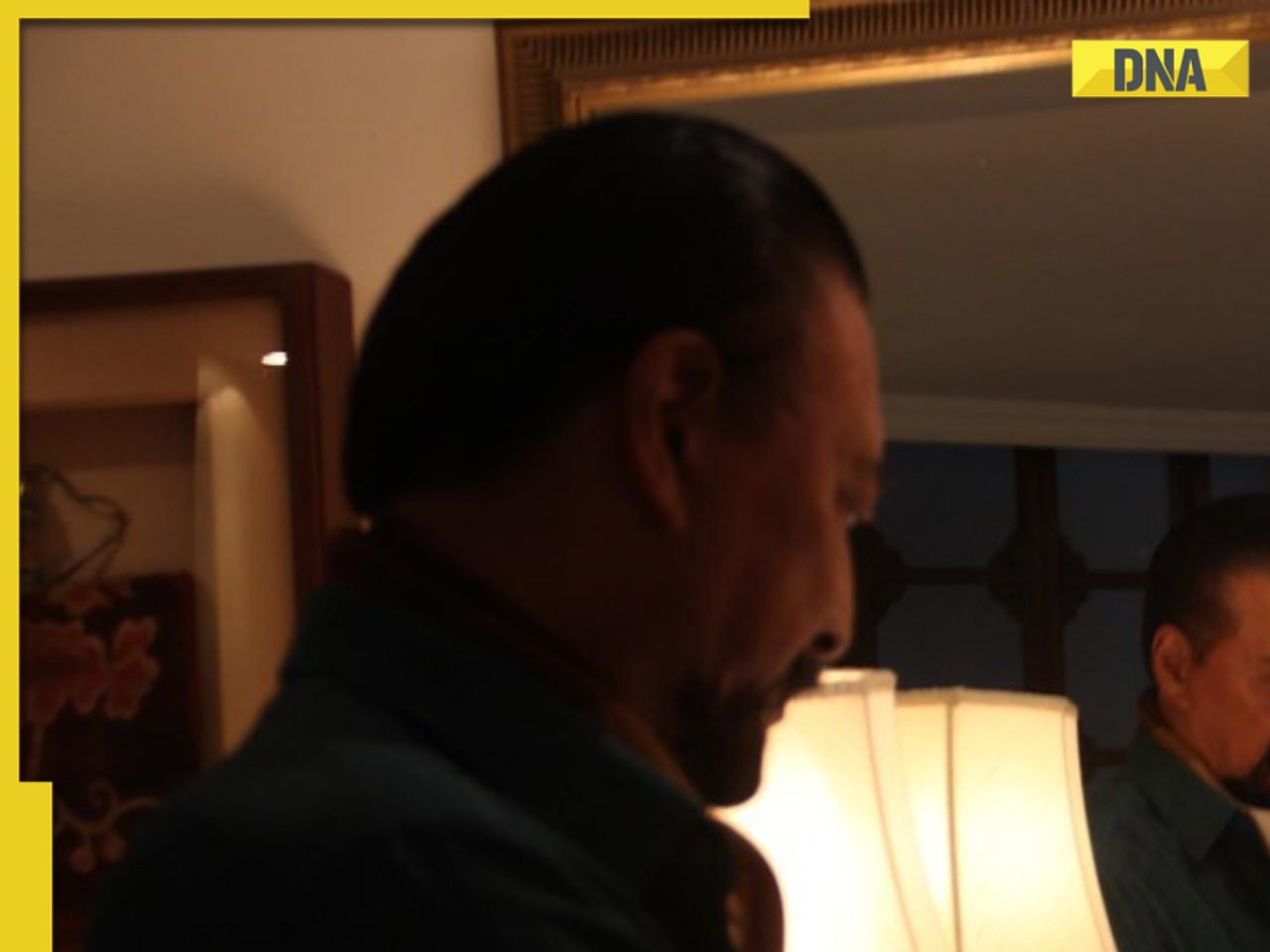









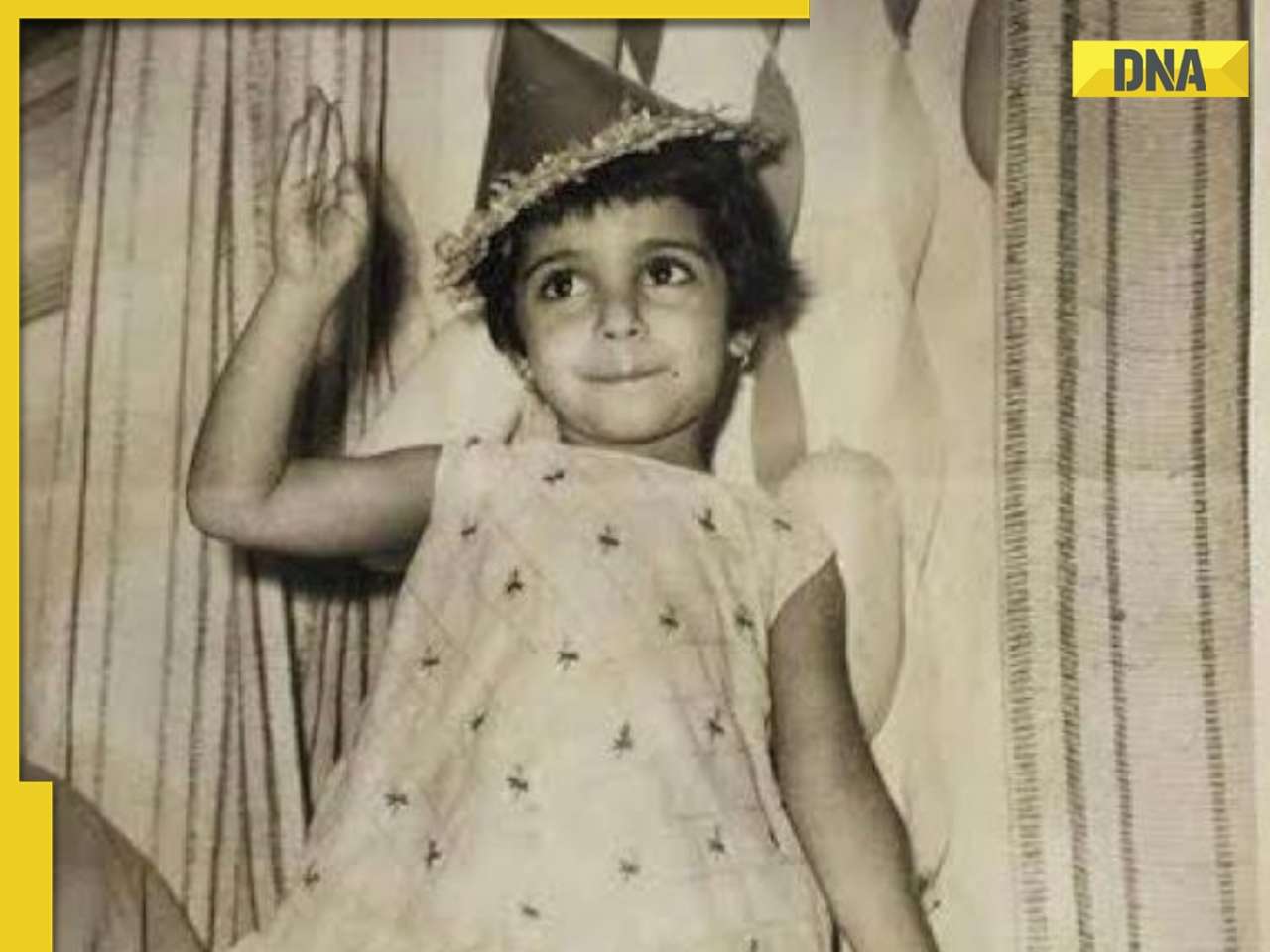






)
)
)
)
)
)